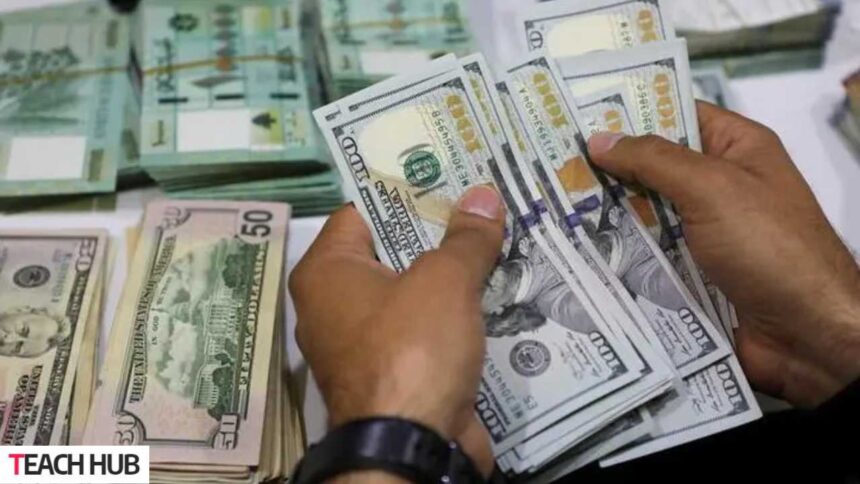The exchange rate between the pound and the dirham is a crucial indicator of economic strength and currency value between the United Kingdom and the United Arab Emirates. This rate determines how much one currency is worth in terms of the other, impacting various aspects of travel, trade, and investment. For individuals and businesses dealing with both currencies, understanding this exchange rate helps in making informed financial decisions, whether it’s for travel, international trade, or investment purposes.
Why Does the Pound to Dirham Exchange Rate Fluctuate?
The Pound to Dirham exchange rate fluctuates due to economic data, political events, and speculation. Economic indicators such as inflation rates, interest rates, and GDP growth influence currency strength. Political stability and events like elections or referendums can also cause volatility. Market speculation and investor sentiment further contribute to these fluctuations. Understanding these dynamics is essential for those who engage in currency exchanges, as it helps anticipate and react to changes in the exchange rate.
What Factors Influence the Pound to Dirham Conversion Rate?
Several factors influence the pound-to-dirham conversion rate, including the economic performance, political stability, and monetary policies of the UK and the UAE. Strong economic indicators in the UK, such as high employment rates and GDP growth, can strengthen the pound. Conversely, similar positive economic data in the UAE can bolster the dirham. Central bank policies, such as interest rate adjustments, also play a significant role. Additionally, global events and market sentiment towards risk can impact the relative strength of these currencies.
How to Convert Pounds to Dirhams: A Step-by-Step Guide
Converting pounds to dirhams involves a straightforward process that can be done through various methods. First, check the current exchange rate using reliable sources like banks or currency exchange websites. Then, decide whether to use an online currency converter, a bank, or a currency exchange service. For online transactions, enter the amount of pounds you wish to convert, and the service will calculate the equivalent in dirhams. For in-person exchanges, visit a bank or exchange bureau with your pounds, and they will provide you with dirhams based on the current rate.
When is the Best Time to Exchange Pounds for Dirhams?
The best time to exchange pounds for dirhams depends on various factors, including market conditions and your specific needs. Exchange rate trends should be monitored, and periods of Favourable rates should be looked for. Economic stability and positive economic indicators in the UK often result in a stronger pound, making it an excellent time to exchange. Conversely, if the UAE economy is experiencing growth, the dirham might strengthen. Monitoring political events and central bank policies can also help determine optimal timing for currency exchanges.
What Impact Does Brexit Have on the Pound to Dirham Exchange Rate?
Brexit has significantly impacted the pound-to-dirham exchange rate due to the uncertainty and economic changes it has introduced. The initial referendum result caused a sharp decline in the pound’s valpound’secting its strength against the dirham. Subsequent negotiations and the final exit have continued to create fluctuations. Economic policies and trade agreements post-Brexit also influence the exchange rate. For businesses and travellers understanding these impacts helps in planning financial activities involving these currencies during periods of Brexit-related volatility.
How to Find the Best Pound to Dirham Exchange Rates
Finding the best pound-to-dirham exchange rates requires research and comparison. Start by checking rates offered by banks, online currency converters, and exchange bureaus. Online platforms often provide real-time updates, making it easier to spot favourable rates. Consider using financial news websites and currency comparison tools for broader insights. Additionally, look for hidden fees that affect the conversion cost. Timing your exchange when market conditions are favourable can also help secure better rates.
Why Monitor the Pound to Dirham Exchange Rate Regularly?
Monitoring the pound-to-dirham exchange rate is essential for individuals and businesses engaged in international transactions. Fluctuations in the exchange rate can significantly impact travel budgets, import/export costs, and investment returns. Staying informed about the latest trends and economic factors influencing these currencies can help you make better financial decisions. For businesses, this can mean optimising the timing of transactions to minimise costs. For travellers, it helps them plan and budget for trips more effectively.
What Are the Benefits of a Strong Pound Against the Dirham?
A strong pound against the dirham offers several benefits, particularly for travellers and importers. For UK residents travelling to the UAE, a stronger pound means more purchasing power, allowing them to get more dirhams for their money. This can result in cheaper accommodation, dining, and shopping experiences. For businesses importing goods from the UAE, a favourable exchange rate reduces the cost of purchasing goods, enhancing profit margins. Additionally, investors benefit as their returns from investments in the UAE become more valuable when converted back to pounds.
How Do Economic Events Affect the Pound to Dirham Exchange Rate?
Economic events significantly affect the pound-to-dirham exchange rate. Key events such as interest rate changes, inflation reports, and employment data releases influence currency strength. For instance, higher interest rates in the UK can attract foreign investment, boosting the pound. Conversely, economic instability or poor economic data can weaken the pound. In the UAE, events like oil price fluctuations and changes in monetary policies impact the dirham. Global events such as geopolitical tensions or pandemics also cause fluctuations, highlighting the interconnected nature of international economies.
Conclusion
The pound-to-dirham exchange rate is crucial in financial decisions for travellers businesses, and investors. Understanding the factors influencing this rate, from economic indicators to political events, is essential for optimising transactions and investments. Regularly monitoring the exchange rate and staying informed about market conditions can lead to better financial outcomes. Whether converting currency for travel or conducting international trade, knowing the dynamics between the pound and the dirham ensures informed and strategic financial planning.
(FAQs)
Why is the pound-to-dirham exchange rate significant?
The exchange rate between the pound and the dirham is crucial because it affects travel, trade, and investment between the UK and the UAE. It determines how much one currency is worth in terms of the other, impacting the cost of goods and services and the profitability of investments.
What causes the pound-to-dirham exchange rate to fluctuate?
The exchange rate fluctuates due to economic factors like inflation, interest rates, GDP growth, political events, and market speculation. These factors influence the relative strength of the pound and the dirham, causing changes in the exchange rate.
What factors influence the pound-to-dirham conversion rate?
Economic performance, political stability, and monetary policies in the UK and the UAE influence the conversion rate. Both countries’ solid financial indicators and favourable central bank policies can strengthen their currencies.
How can I convert pounds to dirhams?
To convert pounds to dirhams, you can use online currency converters, banks, or currency exchange services. Check the current exchange rate, decide on the method, and perform the conversion online or visit a bank or exchange bureau.
When is the best time to exchange pounds for dirhams?
The best time to exchange pounds for dirhams depends on market conditions. Monitor exchange rate trends, economic indicators, and political events to identify periods when the rate is most favourable for your needs.
How has Brexit impacted the pound-to-dirham exchange rate?
Brexit has caused significant fluctuations in the exchange rate due to economic uncertainty and changes in trade agreements. The initial referendum result led to a sharp decline in the pound, and ongoing negotiations have continued to impact its value.
How can I find the best pound-to-dirham exchange rates?
To find the best exchange rates, compare rates from banks, online currency converters, and exchange bureaus. Use financial news websites and currency comparison tools to get real-time updates and identify favourable rates while considering any hidden fees.
Why should I monitor the pound-to-dirham exchange rate regularly?
Regular monitoring helps in making informed financial decisions. Fluctuations in the exchange rate can impact travel budgets, import/export costs, and investment returns. Staying informed allows you to optimise the timing of transactions and reduce costs.
What are the benefits of a strong pound against the dirham?
A strong pound provides more purchasing power for UK travellers in the UAE, making goods and services cheaper. For businesses, it reduces the cost of importing goods, enhancing profit margins. Investors benefit as their returns from UAE investments become more valuable.
How do economic events affect the pound-to-dirham exchange rate?
Economic events like interest rate changes, inflation reports, and employment data releases influence currency strength. Positive economic data can boost the pound or dirham, while harmful data can weaken them. Global events like geopolitical tensions also impact the exchange rate.



